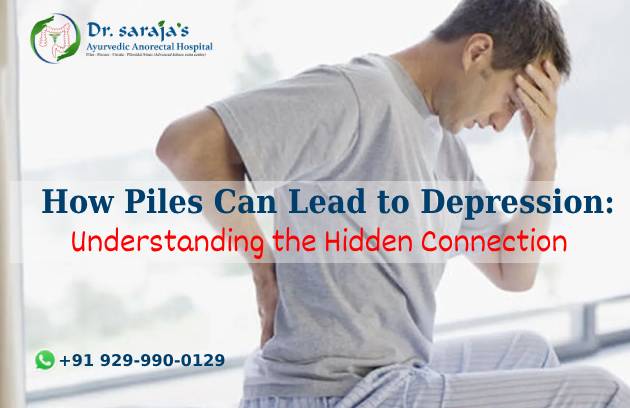Piles, also known as hemorrhoids, are a common medical condition affecting millions of people worldwide. They occur when the veins in the rectal and anal area become swollen and inflamed, causing discomfort, pain, and sometimes bleeding. While piles are primarily considered a physical ailment, their impact extends beyond the physical realm. In this blog post, we will explore the often-overlooked connection between piles and depression, shedding light on the psychological impact of this condition.
Constant Pain and Discomfort:
One of the primary symptoms of piles is pain and discomfort, ranging from mild to severe. This persistent pain can greatly affect an individual’s quality of life, making it challenging to perform everyday tasks or enjoy activities they once loved. Dealing with this constant physical pain can lead to frustration, irritability, and a gradual decline in overall mood, which may contribute to the development of depression.
Social Embarrassment and Isolation:
Piles can also cause embarrassment and self-consciousness due to symptoms such as bleeding, itching, and swelling. The fear of public humiliation or discomfort may lead individuals to withdraw from social activities, including outings with friends, family gatherings, or even work-related events. This isolation can result in feelings of loneliness, sadness, and a sense of being disconnected from the world, which are common precursors to depression.
Sleep Disturbances:
Individuals with piles often struggle with sleep disturbances due to the pain and discomfort associated with the condition. Sleep plays a vital role in maintaining mental well-being, and the inability to get sufficient restorative sleep can lead to a variety of mental health issues, including depression. The exhaustion caused by lack of sleep can further exacerbate feelings of sadness, irritability, and hopelessness, making it even more challenging to cope with both the physical and emotional aspects of piles.
Body Image and Self-esteem:
The physical symptoms of piles, such as visible swelling and the need for specialized cushions or seating arrangements, can negatively impact body image and self-esteem. Individuals may feel self-conscious about their appearance or worry about being judged by others. This preoccupation with their physical condition can contribute to a negative self-image, a sense of inadequacy, and a diminished sense of self-worth. Over time, these factors can take a toll on mental health and increase the risk of developing depression.
Chronic Stress and Anxiety:
Living with piles often means dealing with chronic stress and anxiety. The anticipation of pain during bowel movements, the fear of exacerbating symptoms, and the uncertainty of when the condition will improve can create a constant state of anxiety. This chronic stress can disrupt the body’s hormonal balance, triggering a cascade of negative emotions and affecting neurotransmitters associated with mood regulation. Over time, these imbalances can increase vulnerability to depression.
Conclusion:
While piles are primarily considered a physical condition, it is crucial to recognize the potential impact they can have on mental health. The chronic pain, social embarrassment, sleep disturbances, body image issues, and chronic stress associated with piles can contribute to the development of depression.
Seeking help from a piles specialist in Hyderabad is crucial in addressing both the physical and emotional aspects of this condition. A specialist can provide appropriate medical treatments, lifestyle recommendations, and surgical interventions if required, aimed at alleviating the symptoms and improving the patient’s overall well-being. Additionally, a piles specialist can offer psychological support and counseling to individuals experiencing depression or other mental health issues related to their condition.

